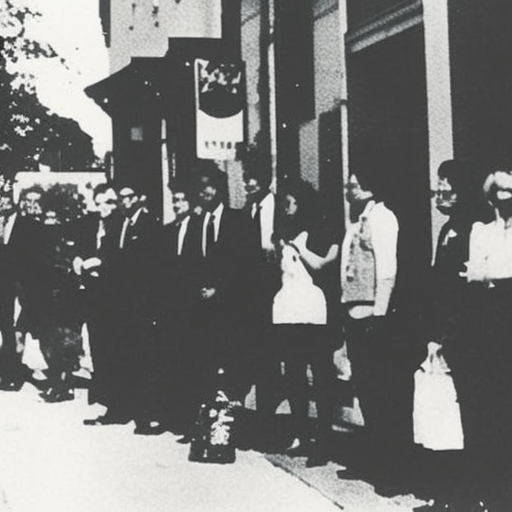Summary:
The Stonewall riots were a series of spontaneous demonstrations by members of the LGBTQ+ community in response to a police raid at the Stonewall Inn in New York City on June 28, 1969. The riots marked a turning point in the LGBTQ+ rights movement and are widely considered the catalyst for the modern fight for LGBTQ+ rights in the United States and around the world.
The Stonewall Inn:
The Stonewall Inn was a popular gay bar located in Greenwich Village, New York City. During the 1960s, LGBTQ+ individuals faced widespread discrimination and harassment, and gay bars like the Stonewall Inn provided a safe haven for the community. However, these bars were often subject to police raids, as homosexuality was illegal in most states at the time.
The Raid:
On the night of June 28, 1969, the New York City Police Department conducted a raid at the Stonewall Inn. The police targeted the bar due to its reputation as a gathering place for the LGBTQ+ community. During the raid, patrons were arrested, and the police used excessive force, leading to a growing sense of anger and frustration among those present.
The Riots:
As the raid progressed, a crowd began to gather outside the Stonewall Inn. Tensions escalated, and the crowd became increasingly confrontational with the police. The situation quickly turned violent, with protesters throwing bottles, rocks, and other objects at the police. The police responded with batons and arrests, but the protesters fought back fiercely.
Impact and Significance:
The Stonewall riots were a pivotal moment in the LGBTQ+ rights movement. The protests continued for several nights, drawing larger crowds each day. The riots galvanized the LGBTQ+ community, sparking a renewed sense of activism and a demand for equal rights. LGBTQ+ organizations and advocacy groups emerged in the aftermath of the riots, working towards legal protections and social acceptance.
Legacy:
The Stonewall riots inspired a wave of LGBTQ+ activism and advocacy across the United States. In the years following the riots, numerous LGBTQ+ organizations were founded, and activists organized protests, marches, and demonstrations to demand equal rights. The riots also led to the establishment of Pride Month, which is celebrated annually in June to commemorate the events at Stonewall and to promote LGBTQ+ visibility and acceptance.
Legal and Social Changes:
The Stonewall riots played a crucial role in advancing LGBTQ+ rights. In the years following the riots, several states decriminalized homosexuality, and the American Psychiatric Association removed homosexuality from its list of mental disorders. The LGBTQ+ community also fought for and achieved significant legal victories, including the legalization of same-sex marriage in 2015.
Global Impact:
The Stonewall riots had a profound impact beyond the United States. The events at Stonewall inspired LGBTQ+ activists around the world to fight for their rights. The riots served as a catalyst for the formation of LGBTQ+ organizations and movements in other countries, leading to advancements in LGBTQ+ rights on a global scale.
Conclusion:
The Stonewall riots were a watershed moment in the LGBTQ+ rights movement. The protests at the Stonewall Inn in 1969 marked a turning point in the fight for equality and acceptance. The events of that night ignited a fire within the LGBTQ+ community, leading to significant legal and social changes in the years that followed. The legacy of the Stonewall riots continues to inspire and empower LGBTQ+ individuals and their allies in the ongoing struggle for equal rights.












